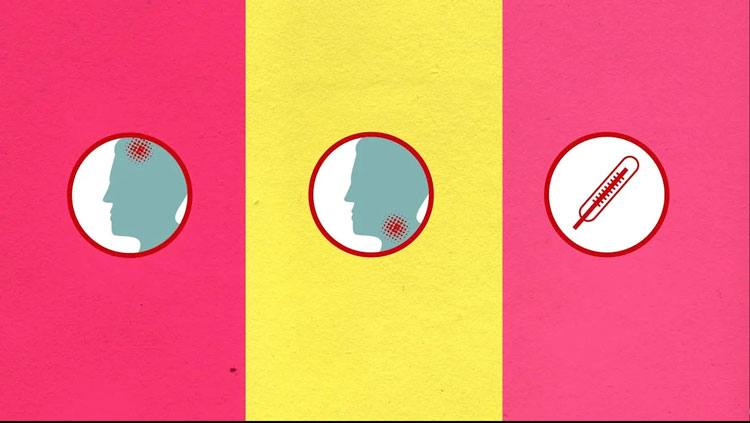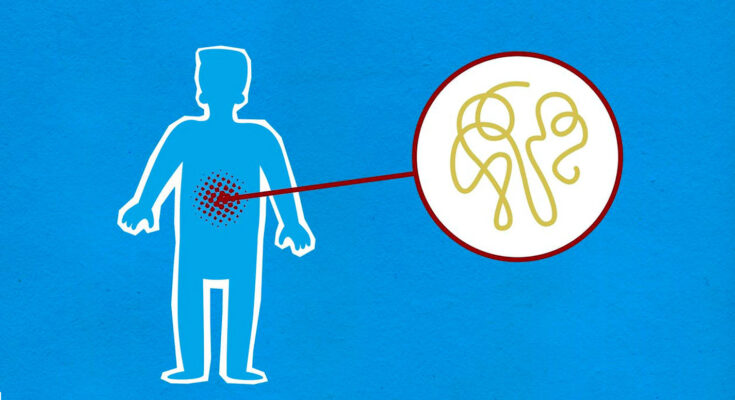Your body’s white blood cells and the substances they produce activate inflammation as a defense against infection from foreign invaders like bacteria and viruses. Autoimmune disorders result from the body wrongly labeling its own cells or tissues as dangerous. Numerous chronic diseases, including metabolic syndromes like type 2 diabetes, obesity, and heart disease, can emerge as a result of inflammation.
A key component of your body’s healing process is inflammation. Inflammatory cells that have moved to the site of an injury or a foreign substance like bacteria cause it to happen. Chronic inflammation may result from inflammatory cells remaining too long. Rheumatoid arthritis, among other medical diseases, can show signs of chronic inflammation. Your healthcare professional might suggest medication or at-home treatment. By eating anti-inflammatory foods and controlling your stress, you can lessen inflammation.
Types of inflammation
There are two main types of inflammation that depend on the severity of the disease.

Acute inflammation
Acute inflammation is a type of disease or injury that is short-term and can be cured.
Five primary indicators of the acute inflammatory phase include:
- Pain: it occurs when one touches the injured area.
- Redness: Increased blood flow to nearby capillaries is what causes the area to turn red.
- Loss of function: might include difficulties in performing the function normally.
- Swelling: If fluid accumulates, a condition known as edema may develop.
- Heat: Increased blood flow could result in the affected area becoming warm to the touch.
Chronic inflammation
The condition can last for months or years and contributes to a number of disorders, including:
- Diabetes
- A cardiovascular condition
- disorders of the joints, such as arthritis
- Allergies
- lung disease that is chronically obstructed
- Psoriasis
- arthritis rheumatoid
Signs and symptoms of acute inflammation
The symptoms of acute inflammation include flushed skin, pain, swelling, heat, and tenderness. Chronic inflammation includes abdominal pain, skin rash, pain in joints, fever, and sores.
Overall symptoms also include a swollen joint that may be warm to the touch, redness, and joint pain.
Additionally, inflammation can result in flu-like symptoms like:
- Fever / Chills
- exhaustion
- Headaches
- reduced appetite
- muscle rigidity
Causes of acute inflammation
White blood cells in your body release substances during inflammation to defend your body from foreign pathogens. As a result, the area of injury or illness receives increased blood flow. Warmth and redness may result from it. Some of the chemicals lead to swelling in your tissues by causing fluid to flow into them. This defense mechanism may irritate the nerves and hurt them. Increased levels of white blood cells and the substances they produce inside your joints over time irritate the joint lining, create swelling, and lead to cartilage loss. Your doctor will probably perform an incisional biopsy if needed, to determine the source of inflammation.
Treatment of acute inflammation
You might decide to adopt an anti-inflammatory eating plan. You might decide to eat more foods with anti-inflammatory qualities, like:
- Seafood high in fat, such as sardines, salmon, or mackerel.
- Greens with leaves, like kale and spinach.
- The olive oil
Consuming excessive amounts of some meals may make inflammation worse. Avoiding the following may help you feel better if you have chronic inflammation:
- meals that are fried, such as many fast food dishes.
- Nitrate-cured foods
- trans fats and highly refined fats.
By adopting healthy lifestyle practices, you may lower your risk of chronic inflammation. These practices include:
- Getting to and keeping a healthy weight.
- Limiting or giving up smoking.
- exercising at least three to five times a week
- reducing your alcohol consumption
- Managing stress using beneficial techniques like journaling or meditation.
Numerous medications can reduce pain, edema, and inflammation. Inflammatory diseases may also be slowed or prevented by them. Physicians frequently recommend more than one. The drugs consist of:
- medications that are non-steroidal anti-inflammatory (NSAIDs, such as aspirin, ibuprofen, or naproxen)
- Corticosteroids (such as prednisone) (such as prednisone)
- antimalarial drugs
- Azathioprine
- Sulfasalazine
- abatacept
You may treat inflammatory illnesses with drugs, rest, physical activity, and surgery to repair joint damage. Several factors will determine your treatment strategies, such as your disease kind, age, the medications you’re taking, and general health.
The way forward
The process of inflammation occurs when vascularized living tissue is injured in order to deliver various defensive materials to the area of injury, including white blood cells and proteins. Inflammation serves as a defense against infection and as a means of healing damaged tissue. However, if the inflammation persists, you should seek medical care immediately.









